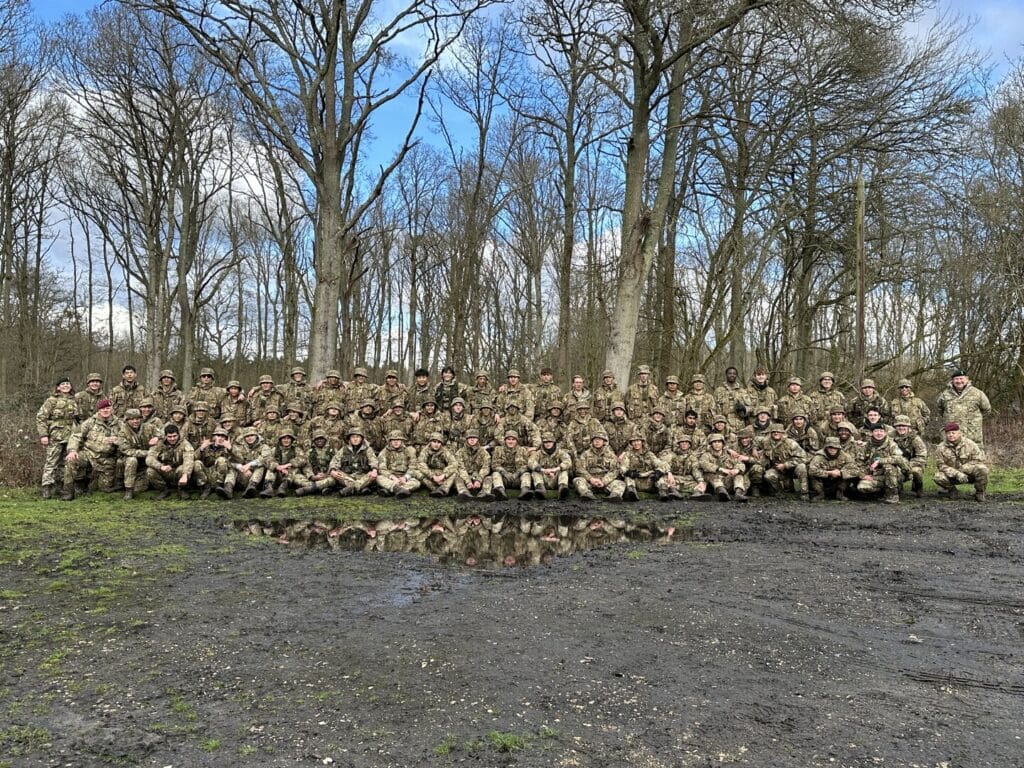Piers Edgcumbe, who was at Eton from 1928 to 1933, served as did many hundreds of Etonians in World War Two. He was in the 12th Lancers but engaged on a special mission to gain Intelligence on the presence of the enemy during the Germans’ rapid advance in late May 1940 when he was killed.
In the chaos of wartime his body was reburied in a nearby WW1 cemetery at Esquelbecq, some 20 miles from Dunkirk as an ‘unknown officer.’ Painstaking work by various researchers proved that the grave in the cemetery was indeed his and a new headstone bearing his name, the crest of his regiment and an inscription chosen by his family was installed. A party from Eton was invited to attend the service to dedicate the stone, which was held on the exact anniversary of his death.
JNO, RSM Blue Cole and I took six Cadets in C Block to northern France, and we visited both the site of the engagement where Edgcumbe lost his life and nearby at Wormhout, the site of the massacre which took place the next day. We stayed in Gravelines, where the German commander issued the ‘Halt’ order to his tanks which was intercepted and exploited to make the ‘miracle of Dunkirk’ possible.
It was possible for the boys to discuss the fighting of ‘delaying actions’, such as that at Cassell, which delayed the German advance and to which Edgcumbe was contributing, and the Army’s duty of care to its soldiers, including burial and memorials.
At the ceremony it was wonderful to see the attention paid by the Royal Lancers, the successor Regiment, to honouring Piers Edgcumbe, and to be present with many local representatives, the Deputy British Ambassador and Military Attaché, as well as many members of his family.
Even though we were marking an event of 82 years ago it had an immediacy to be in the company of several of his nephews and nieces and wider family, and, standing in a CWG cemetery, to mark the sacrifices made by so many for us in two World Wars.
Hugh S laid a wreath and Johnny von F, both in Year 12, read the Eton College Chronicle obituary for Piers, which states that his Commanding Officer wrote of him:
‘I have seldom met an officer who was so cool and brave under fire; he was adored by his men who would have followed him anywhere’
The obituary ends with the words of St Paul, which are now on the headstone, ‘whatsoever things are true and noble, whatsoever things are pure and generous, these things pursue.’






